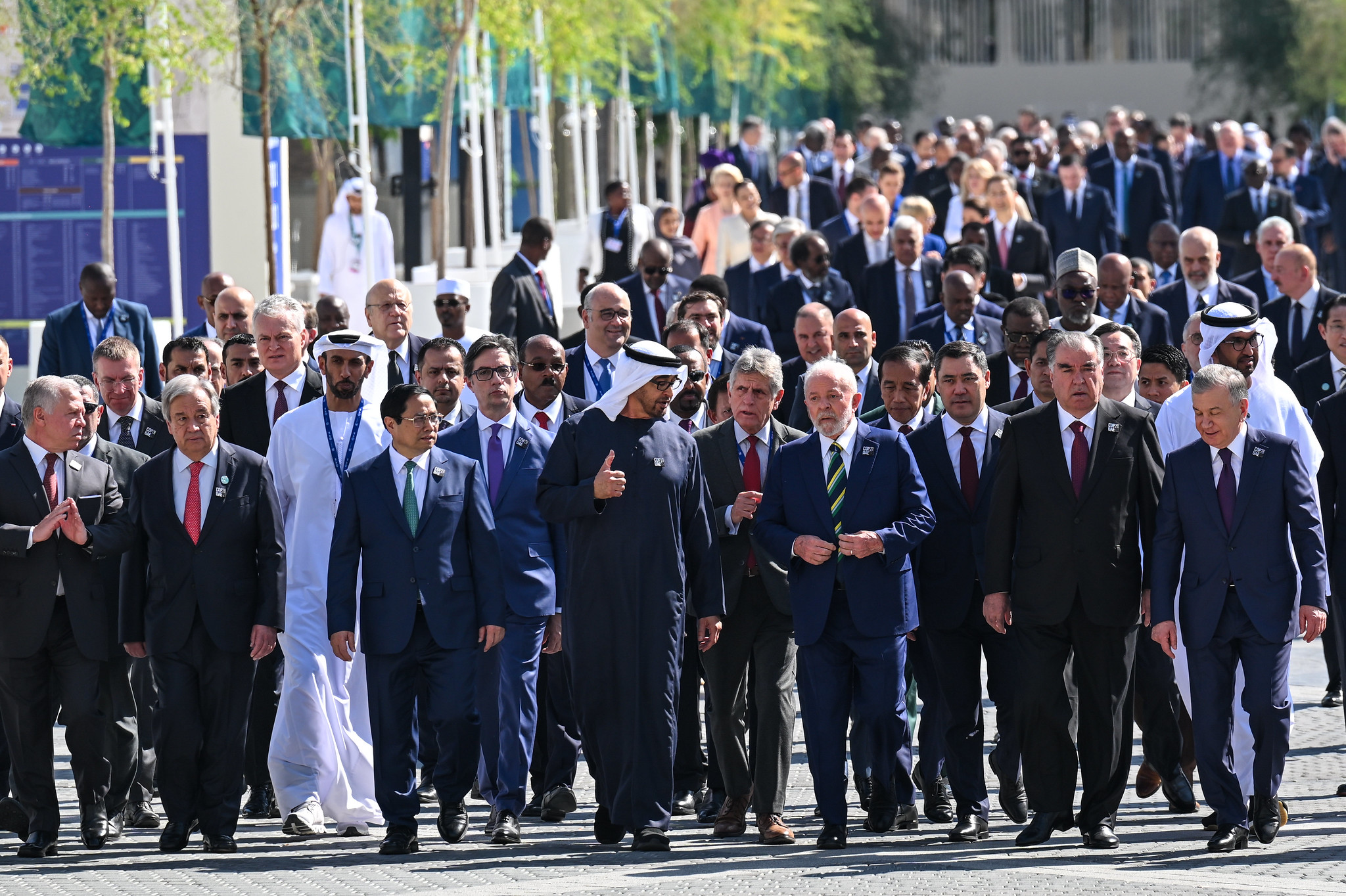DUBAI, UAE — Just days ago, I stood on the melting ice of Antarctica.
Not long before that, I was among the melting glaciers of Nepal.
These two locations are far apart in distance, yet united in crisis.
Polar ice and glaciers are vanishing before our eyes, wreaking havoc worldwide: from landslides and floods to rising seas.
But this is just one symptom of the illness bringing our climate to its knees.
An illness only you, global leaders, can cure.
Earth’s vital signs are deteriorating: record emissions, ferocious fires, deadly droughts, and the hottest year on record.
We are far from meeting the goals of the Paris Agreement – and perilously close to midnight for the 1.5-degree limit.
But it is not too late.
You can prevent a planetary crash and burn.
We possess the technologies to avoid the worst of climate chaos – if we act now.
The Intergovernmental Panel on Climate Change has outlined a clear path to a 1.5-degree world.
But this requires leadership, cooperation, and political will.
And it is needed immediately.
Our world is unequal and divided.
As evident in this region, conflicts are causing immense suffering and intense emotion.
And climate chaos is exacerbating the flames of injustice.
Global warming is straining budgets, inflating food prices, disrupting energy markets, and contributing to a cost-of-living crisis.
Climate action can be the turning point.
Renewable energy is the gift that keeps on giving.
It benefits our planet, our health, and our economies.
Purifying our air.
Addressing the world’s growing energy demand.
Connecting millions to affordable electricity.
Bringing stability and security to markets.
And saving money – renewable energy has never been more affordable.
The diagnosis is clear.
The success of this COP hinges on the Global Stocktake delivering a credible cure in three key areas.
First, drastically reducing emissions.
Current policies are on track for a catastrophic three-degree temperature rise.
The Global Stocktake must establish clear expectations for economy-wide Nationally Determined Contributions that encompass all greenhouse gases and align with the 1.5-degree limit.
The G20 – representing 80 percent of the world’s emissions – must take the lead.
I urge countries to expedite their net-zero timelines, aiming to reach them as close as possible to 2040 in developed countries and 2050 in emerging economies.
Second, we cannot save a burning planet with a firehose of fossil fuels.
We must hasten a just and equitable transition to renewables.
The science is unequivocal:
Maintaining the 1.5-degree limit is only feasible if we ultimately cease burning all fossil fuels.
Not merely reduce.
Not abate.
Phase out – with a clear timeframe aligned with the 1.5-degree goal.
The Global Stocktake must not only commit to this but also pledge to triple renewable energy sources; double energy efficiency; and ensure clean energy access for all by 2030.
The economic reality is clear: the global shift to renewables is inevitable.
The only question is how much more our planet will heat up before this transition occurs.
The Intergovernmental Panel on Climate Change recommends ending our reliance on coal by 2030 in OECD countries and by 2040 for the rest of the world.
Simultaneously, according to the International Energy Agency, the oil and gas industry accounts for just one percent of clean energy investment.
Therefore, I have a message for fossil fuel company leaders:
Your old business model is rapidly becoming outdated.
Do not double down on an obsolete approach.
Lead the transition to renewables.
Make no mistake – the path to climate sustainability is also the only viable route to the economic sustainability of your companies.
I urge governments to assist the industry in making the right choice – through regulation, legislation, fair carbon pricing, ending fossil fuel subsidies, and adopting a windfall tax on profits.
Third, climate justice is long overdue.
Developing countries are suffering from disasters they did not cause.
Exorbitant borrowing costs are hindering climate action plans in developing countries.
And the support provided is far too little and arrives far too late.
The Global Stocktake must commit to a significant increase in finance, including funds for adaptation and addressing loss and damage.
It should also support the reform of multilateral development banks to leverage more private finance at reasonable costs.
Developed countries must demonstrate how they will double adaptation finance to $40 billion a year by 2025 – as promised – and clarify their strategies for delivering on the $100 billion commitment.
The climate challenge is not just another item in your inbox.
Protecting our climate represents the world’s most significant test of leadership.
I urge you to take the lead. The fate of humanity hangs in the balance. Make this COP count. Thank you.
António Guterres is Secretary-General of the United Nations. These are excerpts from his speech at COP28.
The opinions expressed are those of the author and may not reflect the editorial policy or an official position held by TRENDS.








